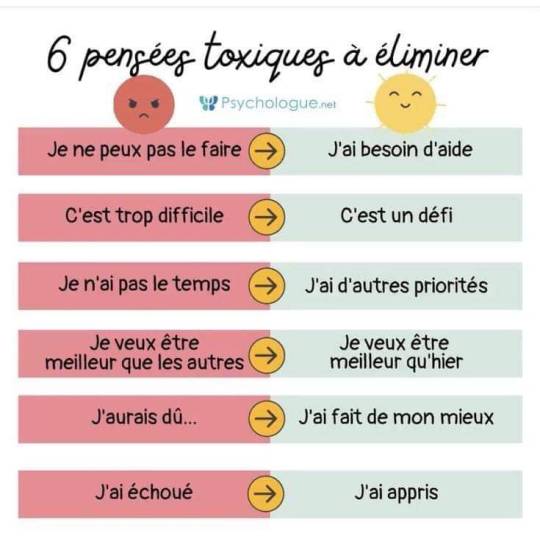Text
Every journal is art!
Reminder that everything you write in your journal doesn't have to be pretty or aesthetic it can be just scribbled words In your journal it's allowed to be messy and not "pleasing" your words don't have to be perfect
2 notes
·
View notes
Text
Bullet, mostly lists or things to do and remember!
How many of you out there journal on a regular basis? What kind of journal do you keep?
Personally, my style is a brain dump. I let it all out, no holding back. I am completely honest about what's going on in my head and life; however, I throw in collages throughout. Within my journal entries, I'll paste images from magazines, or current photographs.

You'll also find pages peppered throughout where I tried gratitude journaling, keeping track of what I'm grateful for and what I need to work on. Those are when I am in my self-improvement kicks. I need to learn how to stay in that mode...
I know another form of journaling is called Bullet Journaling... I've looked it up and still don't completely understand it though. It honestly seems time-consuming, but I probably just don't understand it (like I said). It's visually appealing though for sure.
Currently, I no longer journal. I miss it though. Like an old friend. A lost friend. Journaling is private to me. It's a look inside my head and I've started and stopped all throughout my life. Usually, when I've stopped it's because I've learned someone has breached my trust by reading it... Once that's done I feel... violated. It may sound extreme but I do.. almost dirty, and like my safe space has been taken from me.
I want to get back into journaling and maybe I will. I have an old one I started years ago and stopped just a few pages in... I wonder if I should continue in there or buy a new one. I KNOW YOU KNOW THIS STRUGGLE!!!!
Anyhoo's I'm curious about what you currently do. Share your journals with me.
12 notes
·
View notes
Text
Dream big, work hard and stay true to yourself. It’s easy to get caught up in comparing yourself to others and feeling inadequate, but remember that your journey is unique and that’s what makes it special. Believe in yourself and your abilities. The universe will align to make it happen.
78 notes
·
View notes
Text
🍁Autumn Asks🍂
Amber - what's something you do every day?
Blankets - sweaters or fuzzy blankets?
Boo - ghosts or witches?
Bundled - describe your ideal date.
Camping - do you like s'mores?
Candy Corn - what's your favorite candy?
Cardigans - favorite autumn colors?
Crow - what's an unpopular opinion you have on autumn?
Creature Comforts - cats or dogs (or other)?
Comfy - plaid shirts or demin jackets?
Costume - do you like to dress up for Halloween? Do you have a go to costume?
Cold Hands - are you single or in a relationship?
Cozy - describe your ideal fall day.
Dream - describe your perfect au.
Evergreen - do you like Christmas trees?
Fireplace - do you decorate for fall?
Fresh Air - what's something you're thankful right now?
Frost- anything you're looking forward to?
Giving - do like giving or receiving gifts more?
Halloween - what's your favorite Halloween tradition?
Handmade - do you like making presents?
Harvest - do you like going to autumn festivals?
Hearth - ideal home?
Holidays - do you prefer Halloween, Thanksgiving, or Christmas?
Intricate - what's a subject you have random knowledge about?
Joking - favorite silly joke?
Kids - do you like trick or treating?
Laces - knee high boots or fuzzy boots?
Leaves - favorite candle scent?
Maze - apple picking or pumpkin patch?
Macabre - you have peculiar interests?
Novel - favorite book?
Oven - what's your favorite holiday thing to bake?
Pie - what's your favorite type of pie?
Pinecone - are you crafty?
Potpourri - tell us something random about you.
Pumpkins - do you like to carve pumpkins? Any favorite designs?
Pumpkin Spice - favorite seasonal drink?
Quiet - how do you relax?
Rain - favorite type of weather?
Sweaters - what's your go to fall outfit?
Spooky - do you believe in the supernatural?
Scary - what's your favorite scary movie?
Socks - do you wear socks to bed?
Syrup - waffles or pancakes?
Tasty - do you have a comfort food?
Tea - what's something that soothes you?
Trees - are you in school? What do you study?
Trains - if you could spend the fall anywhere, where would you go?
Thanksgiving - do you celebrate Thanksgiving? What traditions so you have?
Ultimate - describe your best holiday experience.
Vintage - favorite decade?
Warmth - bonfires or indoor fires?
Yule - what's one wish you have for this holiday season?
Zeal - what is something you go all out for?
10K notes
·
View notes
Text
“Learning implies the love of understanding and the love of doing a thing for itself. Learning is possible only when there is no coercion of any kind. And coercion takes many forms, does it not? There is coercion through influence, through attachment or threat, through persuasive encouragement, or subtle forms of reward. Most people think that learning is encouraged through comparison, whereas the contrary is the fact. Comparison brings about frustration and merely encourages envy, which is called competition. Like other forms of persuasion, comparison prevents learning and breeds fear.”
—
Jiddu Krishnamurti in The Book of Life
75 notes
·
View notes
Text
That moment when you are trying to set boundaries but the other person doesn't understand the point.
But you are a polyglot so you explain the point again in all your target languages.
Modern problems requires polyglot solutions
#studyblr#languageblr#french studyblr#language#french#langblr#studyspo#inspiration#positive#funny facts#setting boundaries#target language
12 notes
·
View notes
Text
“Always end the day with a positive thought. No matter how hard things were, tomorrow’s a fresh opportunity to make it better. Good night.”
https://www.quoteoftheday.xyz/2020/09/beautiful-good-night-quotes-and.html
23 notes
·
View notes
Text
“WHEN SOMEONE HELPS YOU AND THEY STRUGGLING TOO, THAT’S NOT HELP THAT’S LOVE”
— Unknown
7K notes
·
View notes
Photo

you are strong
but you are
also tired
and that is okay.
23K notes
·
View notes
Text
Fluency is awesome but here is to the dabblers! The ones who want to learn how to do basic small talk and order food or ask for directions 💜 People who learn languages for holidays 💞 Filling notebooks with introductions in dozens of languages 💗 Surprising waiters or family members or hotel receptionists or strangers on the street with a couple of words 💖
311 notes
·
View notes
Text
Beginner to intermediate (A0 to B2) study tips

Hi! Here is a masterpost of my self-study tips. I'm going to copy one of my posts onto here.
Some general rules
Make language learning a habit.
Be consistent.
Have a plan and clear goals. Know which skills you want to focus on and how you want to study.
Make sure you have a solid foundation in vocabulary and grammar.
Store all of your notes in one place.
Use a variety of resources but not too many. One or two per skill is enough.
Focus more time on practicing than on learning vocabulary and grammar.
Get corrections. HiNative is good for this. Journaly is also good for writing. You could also get a study buddy.
Have fun!
How to start learning a language (A0 to A1)
Learn the alphabet! You can do this using flashcards. Make sure you practice writing the words and memorise the stroke order. For languages like Japanese or Mandarin Chinese that have characters, learn some of the most basic characters and their stroke orders.
Immediately start working on your pronunciation! Watch some pronunciation guide videos, and then start speaking and shadowing. Make sure a video has subtitles in the language, and try to say everything being said in the video (make sure it is beginner friendly) right after it is said.
Use an app! Duolingo, Lingodeer, HelloChinese and Memrise are just a couple of incredible ones. I highly recommend them.
Complete an online course or a beginners textbook! There are loads available for free online. Hell, there are loads available on this website. Make sure the approach is vocabulary based, not grammar based, as that will be more useful for you. Also, make sure that audio is available to you.
Start texting natives on apps like Tandem or HelloTalk! This gets very good results, as you can learn new vocabulary being texted to you, along with being able to look up new common greetings and phrases while you are texting.
Memorise basic vocabulary and grammar! Learn the basics of present tense, gender, adjective agreement, word order and some structures, along with a few vocabulary lists of necessary vocabulary (common greetings, animals, colors, family etc.). For grammar, I’d recommend just using a workbook, and for vocabulary, flashcards are very good.
Immerse! Try to listen to and read the language in your dead time, so you can get used to it. Turn the language of your phone to your target language. Read tweets in the language. Watch YouTube videos about fun subjects that you like. If the language you are learning is particularly difficult (like Japanese and Chinese), then try and read and listen to fun learners exercises. Generally just try to get used to the sounds of your target language, and reading the alphabet or familiar characters.
How to go from beginner to intermediate (A1 to B1)
Use a textbook or online course! Don’t skimp: get a dense one. Make sure that you don’t use a grammar based one over a vocabulary/practice based one. If you use a textbook, then make sure that it has audio with it. Also, make sure to learn all the vocabulary on the course, and also do all the exercises.
Work through a grammar book! You can do the exercises, turn it into a cheat sheet or something like that. Try focusing more on using the rule/structure than writing notes.
Expand your basic vocabulary! Try making a list of topics that you definitely need to be able to have a basic conversation with a native. The GCSE specification is a good guide for this. Add to that vocabulary about subjects that interest you (e.g. science, language learning etc.). You can learn this using a bunch of methods, but my personal favourite is flashcards.
Find a speaking buddy, and speak! This is simple, but it works. Try to find somebody to speak with and have basic conversations in your target language with. Do this however often you would like. You can also try having conversations with yourself without looking at your notes. Make sure to look up words that you don’t know but want to use. Also, you can try memorising set phrases and vocabulary around certain topics, and talk about them. You might also use a script, if you want. You can find a buddy on Tandem or HelloTalk, or maybe even HiLokal.
Immerse. Listen to music, change your phone's language to the language, follow people on social media and watch YouTube videos.
Read and watch content for native children. It is usually at the perfect level for beginners. I’m planning on watching a lot of Peppa Pig in Spanish to expand my vocabulary. It is difficult enough to strengthen your skills and simple enough for you to understand it. You’ll also learn a lot of widely used vocabulary.
Shadow native material. This is honestly the best way to practice your pronunciation. Get ahold of a video (Easy Languages is amazing for this!) and repeat what is said after it is said. Copy the intonation and imitate the sounds being made.
Text natives on Tandem or HelloTalk. This is just generally quite a useful way to practice your writing. Look up words that you do not know and write them down to memorise later. You can memorise set phrases to use in conversation, and also practice reading what they text you too. Also, it is just a nice way to meet new friends.
Engage with intermediate content in the language. I know it is difficult, but it will get you used to more complex language. Find intermediate podcasts with transcripts, and read along with what is said.
Read and listen to native material related to your interests! Personally, I like language learning, so I watch a lot of videos on that. Go for something where they do not use a lot of slang or jargon, and speak at a relatively normal speed. Videos and articles that explain concepts or offer advice are usually good for this.
How to go from intermediate to conversational (B1 to B2)
Listen to intermediate level podcasts and videos. There are loads of podcasts and youtube channels that offer intermediate material for learners, like InnerFrench, a piece of French, iyagi and dreaming spanish. Innovative languages also offer intermediate level podcasts. You should be able to understand a lot of it, though there will definitely be quite a bit that you don’t. Make sure to look at transcripts/subtitles, and note down words you don’t understand.
Shadow native material. I personally believe Easy Languages is the absolute best for this.
Watch TV shows and films. Make sure that they don’t use any jargon or time-period specific language. Choose something like a romance or coming of drama, that has common vocabulary. Don’t just watch an episode once either. Keep on repeating it until you can understand enough of it to get what is going on.
Keep a journal in your target language. Try and write about a range of subjects. Also, get corrections.
Speak. What I have advised earlier is applicable here. Also, learn how to talk around words when you don't know them.
Work through a grammar book. Do practice questions and make your own example sentences.
Read articles and books about subjects that interest you.
Read fanfiction in your target language.
Watch videos and the news in your target language.
Try writing short stories and essays. You can use vocabulary you learn from books here! Try memorising set phrases. Choose a topic/story that you're passionate about.
Ways to learn about culture, history and linguistics
Research dialects! Look into how languages change depending on the area, and how they adapt to the different needs of different cultures.
Cook popular recipes!
Subscribe to popular youtubers, magazines and newspapers.
Research how religion affects the countries where your target language is spoken.
Read books on the linguistics and history of your target language.
Listen to podcasts in the language.
Read classic and influential literature. You can use a translation if you aren't at that level.
Read wikipedia pages about topics that interest you.
Ask native speakers questions.
Watch the most popular TV channels in countries where your target language is spoken.
Watch films, documentaries and TV shows. This can give you a taste of the culture AND the language.
Subscribe to YouTube channels by immigrants who have moved to countries where your target language is spoken (or vice versa). This provides a unique perspective, and can be helpful for learning about some of the bigger cultural nuances.
Research famous art and artists that spoke your target language. I really like Stromae (a french artist), so my fangirl habits have led to me making some pretty interesting discoveries about French music and slang.
And that’s pretty much it! I haven’t reached the advanced stage in any of my languages, but when I do, I’ll write a post on overcoming the intermediate plateau. I hope this was helpful. Thanks for reading my post!
868 notes
·
View notes
Text

#studyblr#languageblr#french studyblr#language#french#langblr#motivation#studyspo#positive#inspiration
5 notes
·
View notes
Text
Appropriate reading and note taking strategies📚
1. Reading for information 📋
This is for finding specific details like dates, statistics, when an artist died, etc.
• Reading strategy: Start by scanning. Search text looking for keywords and phrases, moving your eye fast, and not attempting to take in whole sentences (like when using a telephone directory)
• Note-taking strategy: You could highlight specific parts of the text and note down key information and full details of the source
2. Reading for understanding 🤔
This is to get the main idea and a general overview of the text. You may then decide to read in more depth if you need to.
• Reading strategy: Start with skimming. Read introductions and conclusions. Look at headings, subheadings, and the beginnings and endings of paragraphs. You might read the full text only once
• Note-taking strategy: You could highlight key bits of text but make sure you also annotate to clarify why you have highlighted it. Summarise the main idea in your own words. Think of the best technique for you. You could use drawings, short keyword notes, or mind maps, for example. Include full details of the source
3. Critical in-depth reading 💡
This is about developing a full understanding of the text. The question, analyze and evaluate what you are reading. You will need to do this for your assessments.
• Reading strategy: You may start by skimming and previewing the text, but then read carefully and slowly. You may need to read multiple times and raise questions as you read
• Note-taking strategy: Highlight and annotate the text. Make detailed notes but do not copy out all the detail. Your notes should contain your critical comments and questions, and a summary in your own words of what you have understood about the text
Resource: online course 👩🏽💻 Preparing to Learn Online at University
268 notes
·
View notes
Text
Low effort language study tips

Beginner
Play on an app (e.g. Duolingo, Memrise, Lingodeer, HelloChinese etc.)
Text people in your target language on apps like HelloTalk and Tandem.
Listen to a language learning podcast in your free time.
Watch a children’s show or film with subtitles.
Read social media posts in your target language.
Reread your notes.
Speak to yourself in your target language.
Intermediate
Watch a YouTube video with subtitles in your target language.
Read a book you have already read in your native language in your target language without looking any of the words up.
Memorise extra vocabulary using an SRS flashcard app (e.g. Quizlet, Memrise and Anki)
Watch a film or TV show in your target language
Try calligraphy in your target language.
Advanced
Listen to a podcast in your dead time
Watch a film or TV show without subtitles (maybe a historical drama, because they tend to be interesting and with more complex language)
Write creatively in your target language
Listen to an audiobook
Watch vines and tiktoks in your target language
Have a relaxed conversation with a friend in your target language
Thanks for reading this post! I hope it was somewhat useful to you!
467 notes
·
View notes
Text
My 20 Favorite Language Learning Tips
Use small phrases when talking to pets/inanimate objects/ yourself etc
Kid books!!! Especially ones you know like cat in the hat or something similar. These are amazing especially if you are a beginner. It helps build fluency, literacy, pattern (different languages have different speaking patterns and flow), etc. There's a reason they push the books on kids.
Do translations! Take those books and mark them up. Find news articles, research papers, etc and translate them.
Keep a diary in your target language
Find people who are native speakers and tell them to talk to you in that language more than your native language
WRITE. When I formally studied Spanish, one of my teachers made us write EVERY WORD 10 times with their meanings. If it was a phrase, we would still do it word by word. I HATED this so much but after 4 years of not speaking or hearing the language, those were the words I still knew.
Change your phone language or an app language to your target language
Watch shows in your language. Use subtitles. If you're trying to learn to read better, put subtitles in your target language. Trying to pick up words? Use your native language for subtitles and listen to the show in your target language.
Describe your actions, feelings, etc to yourself in your target language
Find signs in public that are multilingual and read them
Play your favorite songs in your target language and sing along
Play your favorite songs in your native language but sing along to them in your target language
Follow comic artists (or other people) on social media. Comic artists are great because they tend to use slang, colloquial language, jokes, etc that build a more fluent speech. Makeup artists and influencers are good for this too
Go to shops. Where I'm from we have mercados and taquieras everywhere so going to places like that can help a lot
Reach out to people and learn with them! Find someone that studies the same language or someone who's trying to learn your language but speaks your target language. Talking with non native speakers can help you learn study and language tricks that helped them
Flash cards!
Apps that help you learn a new language are great! But only if you practice outside the app
Find recipes written in your target language
Rewrite class notes in the language!
Say at least one word a day in your target language
3K notes
·
View notes

